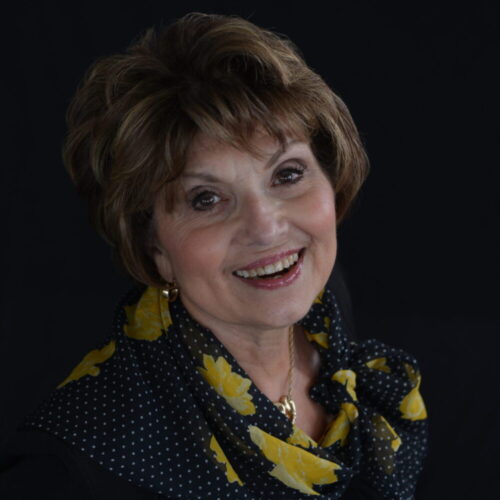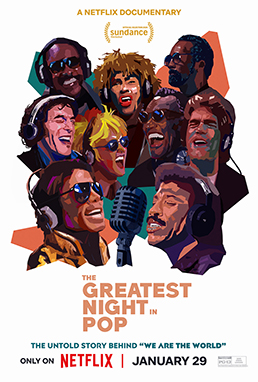
(By Deborah Parenti) I recently watched the Netflix documentary The Greatest Night in Pop. For those who don’t remember (or weren’t around yet), the film captures a January evening following the 1985 American Music Awards when more than 45 top artists came together to record “We Are the World.”
Among them were Bob Dylan, Michael Jackson, Bruce Springsteen, Billy Joel, Paul Simon, Tina Turner, Kenny Rogers, Stevie Wonder, Diana Ross, Willie Nelson, Cyndi Lauper, and Ray Charles. The song’s singular purpose was to raise money for famine relief in Ethiopia. And it worked.
Besides winning four Grammy Awards, the song raised more than $63 million for charity (approximately $227 million today, adjusting for inflation). “We Are the World” remains one of the best-selling physical singles of all time.
One of the most remarkable aspects of the recording was how so many musical superstars and legends were able to keep their egos in check. It didn’t hurt that producer Quincy Jones hung a sign at the entrance to the studio reading, “Check your egos at the door.”

For the evening, that eventually turned into dawn, the sum was somehow even greater than its extraordinary single parts, spurred on by their mission of aiding starving people on another continent.
It was one of those remarkable moments in time that give hope for brighter, more compassionate days ahead.
Another one of those moments occurred at this year’s Grammy Awards when Tracy Chapman and Luke Combs took to the stage to perform Chapman’s “Fast Car.” In case there is anyone not familiar with the song, it was written and first recorded by Chapman in 1988.
Last year, Combs covered the song in what became a huge hit, making Tracy Chapman the first Black woman to win Song of the Year at the CMA Awards last November. Subsequently, that also evoked debate about Black women in country music — as well as all genres.
USA Today’s Jim Sergent, in a beautifully penned February 6 column, saw it this way. “…a Black woman and a white man sang together about people down on their luck and dreaming of better lives. Maybe we saw that our troubles and dreams can connect us and how much more we could accomplish together. And maybe the politics and other divisions faded – at least for those few moments.”
I’ve reread Sergent’s words a number of times – especially how “troubles and dreams can connect us.”
Big ideas often get mired in extraneous details. While those distractions may at times be intentionally designed to derail the focus, they sometimes stem from fear and misunderstandings. But when courage and determination are the driver, ideas founded in dreams can prevail and even come true.
I have been reminded that radio offers much more than entertainment and news. It connects and shares troubles and dreams, triumphs, and fears, by educating and opening minds to fresh ideas, expanded perspectives, and a beautiful cultural mosaic. Music, talk, sports, and public affairs programming offer wonderful opportunities to connect all of this.
But broadcasting isn’t “broad” if it is not diverse from the top down — and that means ownership.
That can’t happen as long as thousands are shut out by economic roadblocks. According to the FCC’s most recent ownership report, which dates back to 2019 — in itself a problem — “persons belonging to racial minority groups held a majority ownership interest in 4% of commercial broadcast stations,” while representing over 20% of the population.
Something major is wrong here, but the fix is easy. It’s the Minority Tax Certificate. It worked before, and it can work again. Someone must tell Congress to get off the fence, check their egos (and differences) at the door, and pass it. And that someone is all of us. Today.
Deborah Parenti is Publisher of Radio Ink. Reach Deborah at [email protected]. Read her Radio Ink digital archives here or read her latest column with a digital or print subscription here.







You are confusing this topic. You are citing Federal tax code exemptions, claiming those were preferential treatment. Lol. The tax codes are for everyone, not just the wealthy. And ANYONE working for or attending Wizards games, benefits by the tax incentives that you allege they received. No discrimination based on color or income.
On the other hand, taxpayer-supported tax breaks for would-be minority station owners, are discriminatory in their nature. The money would be much better used for the inner schools, to help the poor and needy kids of all colors. Just one example.
By the way, my comment below was in reply to The Big A’s comment.
We absolutely do not agree with you or the NAB. Station owners often forget this- but radio stations are PUBLIC licenses. Licenses that belong to all of the public, not just certain ethnicities. To give tax-free incentives on station ownership transfers, means that taxpayers have to foot the bill and make up for the lost tax revenue. Why? Why should the taxpayers be burdened by that?? That is wrong.
Certainly, minority groups should be encouraged to buy stations. Maybe current station owners can put their money where their ideology is, and give large discounts or help finance, minority station owners. Not sure why they would want to do that, but ok.
But to ask taxpayers to subsidize tax-free station transactions, is wrong and is another unfair burden on the taxpayers.
”But to ask taxpayers to subsidize tax-free station transactions, is wrong”
Does the government currently give tax incentives to first time home buyers? Does the government give tax breaks to billionaires who declare various exemptions? Tax incentives to the Washington Wizards & Capitals to move to Virginia? Was I the taxpayer consulted about that? The rich and privileged get loads of tax breaks. Why not extend that right towards the goal where ALL of the people, not just the rich, can own the public’s airwaves? The right to free speech shall not be abridged.